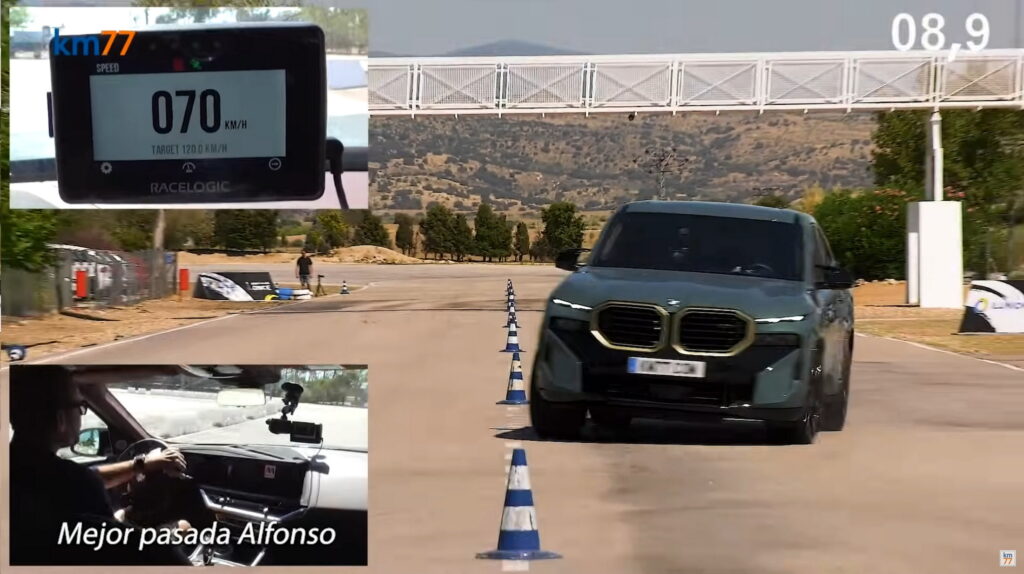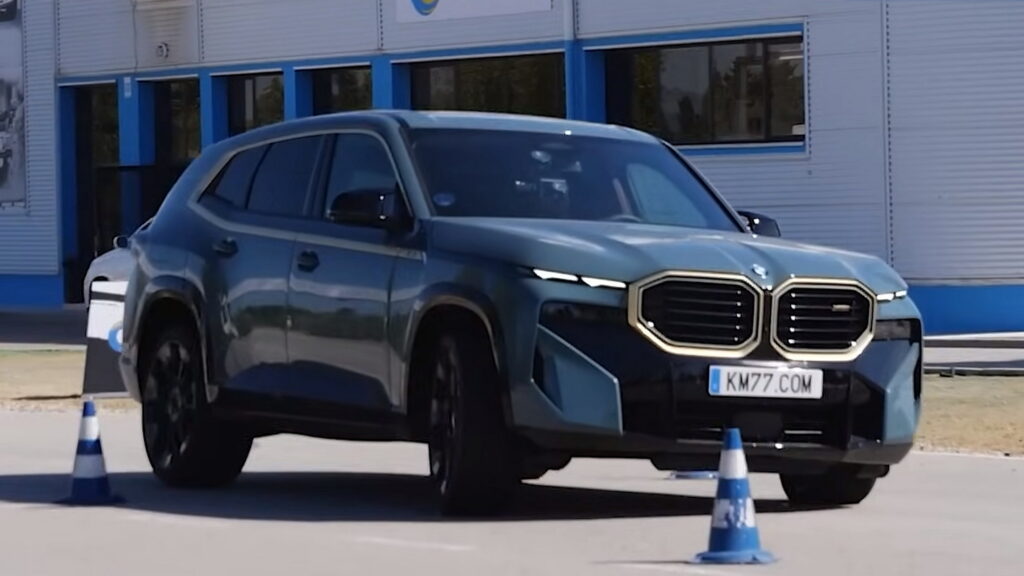The moose test has become one of the most fascinating exercises in the automotive industry, as much for its relevance to real-world driving, as for its surprising results. The latest notable performance doesn’t come from a disaster, it comes from the BMW XM performing surprisingly well.
You may argue that a BMW managing the moose test well is not a surprising result. After all, the brand fancies itself as the “ultimate driving machine.” But when that particular BMW is an enormous, plug-in hybrid SUV that weighs more than 6,100 lbs (2,800 kg), it makes more sense that expectations were low.
And on the first run, it looks like this might turn into an unmitigated disaster for the big M-branded SUV. To be sure, the XM simply can’t manage to perform the test at 48 mph (77 km/h). However, it does go through the moose test at 46 mph (74 km/h).
Read: BMW X3 Gets Through The Moose Test But It Wasn’t Pretty

Moreover, the driver is complimentary about the driving characteristics, saying that when the XM loses traction, it does so gently and progressively. In addition, while it displays both oversteer and understeer, it does neither to an alarming level.
“All in all, the reactions of this one were not very different from those described in other attempts: a small body roll, clean and relatively fast movements, and a high feeling of security,” the host declares. “I have to admit that with respect to the first impression I had after the first attempt, I was wrong, I said that it was going to be more difficult for me to get it between the cones, but the truth is, it was quite easy.”
More impressive still was the XM’s performance through the slaloms. Agile and confident, it manages to complete KM77’s test in 22.9 seconds, which makes it faster than a 2022 Audi RS 3 Sportback. While that compact car has less power than the XM, it is also significantly smaller and lighter, making this a pretty good result for BMW.




